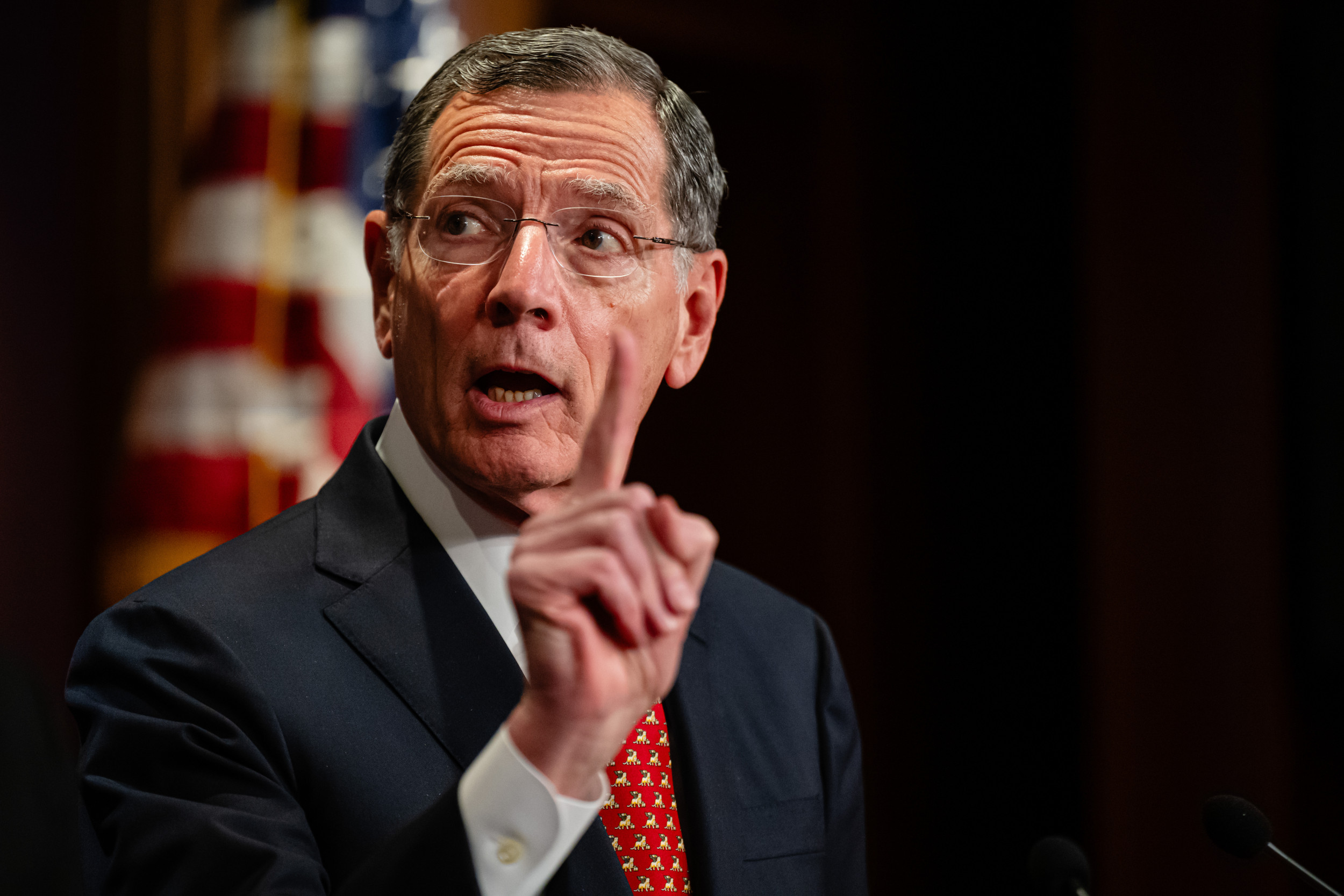Economist Francois Melese warned in an op-ed published on Sunday that President-elect Donald Trump's plan to deal with dwindling Social Security benefits may speed up insolvency.
Newsweek reached out to Trump's transition team via email for comment on Sunday.
Why It Matters
There are currently nearly 73 million Americans who receive some type of Social Security benefits, including nearly 56 million who are aged 65 or older. While Americans have been paying into the system for years, the Social Security Administration (SSA) is scheduled to run out of money for full payments as early as 2035.
Social Security is a dicey issue on Capitol Hill as lawmakers want to solve the federal program's insolvency crisis but don't want to upset their constituents who benefit from it. Trump, meanwhile, has voiced his support for not cutting the costly program or changing the retirement age to collect benefits.
What To Know
Melese, a professor emeritus of economics at the Naval Postgraduate School in Monterey, California, explained in an opinion piece for the San Francisco Chronicle that the nation's pooled Social Security benefits are being "rapidly" drained by recipients because "way more [Baby] Boomers are retiring than young people are joining the workforce."
"Trump believes that a stronger economy would naturally sustain Social Security. Economic growth and job creation would boost payroll tax revenues to support the program," Melese wrote.
However, he wrote that one projection shows that Trump's proposed policy to get rid of taxes on Social Security benefits "would accelerate insolvency to 2031 and reduce benefit payments by one-third in 2035," citing an October 2024 report by the Committee for a Responsible Federal Budget (CRFB).
The nonpartisan group said Trump's proposals to end taxes on Social Security benefits and workers' tips, hit other countries with tariffs and expand deportations on illegal immigrants "would all widen Social Security's cash deficits."
The president-elect wrote on Truth Social earlier this month: "We must Secure our Border, Unleash American Energy, and Renew the Trump Tax Cuts, which were the largest in History, but we will make it even better - NO TAX ON TIPS. IT WILL ALL BE MADE UP WITH TARIFFS, AND MUCH MORE, FROM COUNTRIES THAT HAVE TAKEN ADVANTAGE OF THE U.S. FOR YEARS. Republicans must unite, and quickly deliver these Historic Victories for the American People."

How Does Melese Suggest Fixing Social Security?
Melese suggested in Sunday's op-ed to merge the Social Security Disability Insurance, a taxpayer-funded program that offers financial assistance to people who are unable to work because of a disability, and the Supplementary Social Security Insurance, a federally funded program that offers financial assistance to lower-income individuals with disabilities.
"Merging the two could create a new, innovative, federal disability program that eliminates duplication, consolidates payment systems, streamlines medical reviews, improves fraud detection, cuts administrative costs and reduces processing times," he wrote. "Best of all, efficiencies from combining the programs could release more resources to better serve the disabled. The tighter link between payroll taxes and pensions would give the president and Congress breathing room to enact more permanent reforms."
What People Are Saying
The Republican National Committee (RNC) said in a pamphlet for July's Republican National Convention that the GOP would "fight for and protect Social Security and Medicare with no cuts, including no changes to the retirement age."
President-elect Donald Trump said in a CNBC interview in March 2024: "So first of all, there is a lot you can do in terms of entitlements in terms of cutting and in terms of also the theft and the bad management of entitlements, tremendous bad management of entitlements."
Trump's campaign spokesperson Karoline Leavitt told CNN at the time that Trump was "clearly talking about cutting waste, not entitlements."
"President Trump delivered on his promise to protect Social Security and Medicare in his first term, and President Trump will continue to strongly protect Social Security and Medicare in his second term."
Former Republican New Hampshire Governor Chris Sununu said on CNN's State of the Union late last month during the final days of his governorship that Social Security cuts "should be on the table."
"Nobody even wants to touch this 'third rail,'" he said. "My argument is...the American people saying, 'Touch it, do it, fix this thing because we don't want our benefits cut, we don't want Medicare to disappear,'" referring to the projection that Social Security recipients could lose 17 percent of their benefits in 2035 if no legislative action is taken.
What Happens Next
It's unlikely Republicans who now control the House and Senate will touch Social Security anytime soon and Trump has made it clear that he will protect the program.
The newly signed Social Security Fairness Act by President Joe Biden will increase Social Security payments for around 3 million pension workers and their spouses, could face problems getting implemented under Trump, who supported the bill, according to David A. Weaver, economist and retired federal employee.
Weaver said in a recent op-ed published by The Hill: "It will fall to his administration to actually make the new benefit structure a reality. This will be a challenge, partly because of the chaotic legislative process that brought the law into effect...[the] hurried process allowed for little discussion of the practical details associated with implementing the legislation."




















 English (US) ·
English (US) ·